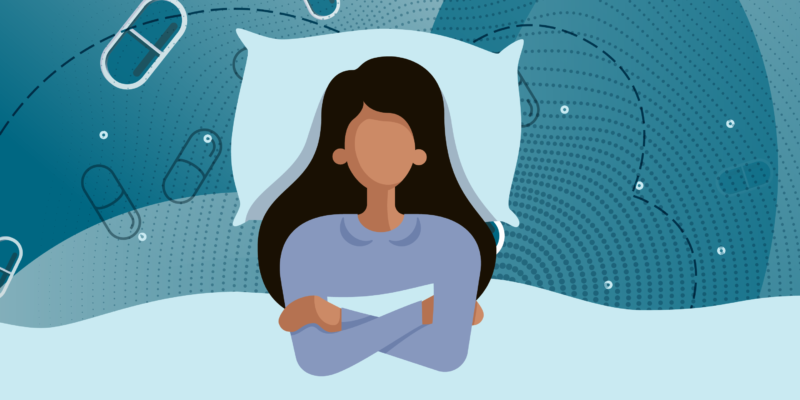
Insomnia, a condition that plagues millions worldwide, often transforms the simple act of sleeping into a nightly battle. For those who have experienced it, the term evokes a blend of frustration, fatigue, and a desperate search for relief. In this article, we will explore personal stories of individuals grappling with insomnia, alongside solutions that have provided them with hope and healing.
Understanding Insomnia
Before diving into personal accounts, it’s essential to understand what insomnia is. It is characterized by difficulty falling asleep, staying asleep, or waking up too early and not being able to return to sleep. This disruption can lead to daytime fatigue, irritability, and difficulty concentrating, impacting overall quality of life.
Insomnia can be classified as short-term (lasting less than three months) or chronic (occurring three times a week for three months or more). The causes can vary from stress and anxiety to medical conditions and lifestyle choices. However, the impact is universal: a relentless struggle to find rest.
Personal Stories
Sarah’s Struggle with Stress-Induced Insomnia
Sarah, a 34-year-old marketing executive, had always been a good sleeper. However, after starting a demanding job and dealing with personal issues, she found herself tossing and turning every night. “I’d lie in bed, my mind racing with thoughts about work deadlines and personal challenges,” she recalls. “The more I tried to sleep, the more elusive it became.”
After weeks of sleepless nights, Sarah sought help. She discovered that incorporating a relaxing bedtime routine made a significant difference. “I started taking warm baths, practicing deep breathing, and journaling before bed,” she shares. These small changes helped ease her mind and prepare her for sleep.
Mark’s Journey Through Chronic Insomnia
Mark, a 45-year-old father of two, had been dealing with chronic insomnia for over a decade. “It felt like I was trapped in a cycle of exhaustion. No matter how tired I was, sleep wouldn’t come,” he explains. Mark’s insomnia stemmed from a combination of work stress and underlying anxiety.
After many sleepless nights and countless attempts to find a solution, he finally sought professional help. Cognitive Behavioral Therapy for Insomnia (CBT-I) emerged as a turning point. “It helped me understand my sleep patterns and gave me tools to manage my anxiety,” Mark says. By restructuring his thoughts and behaviors around sleep, he gradually reclaimed his nights.
Julia’s Natural Remedies
Julia, a 29-year-old yoga instructor, experienced intermittent insomnia during her college years. “I was juggling classes, part-time work, and social life. Sleep felt like a luxury,” she admits. Frustrated by the impact on her studies and mood, she turned to natural remedies.
Julia experimented with herbal teas and essential oils. “I found that chamomile tea and lavender oil were particularly soothing,” she notes. Additionally, she integrated mindfulness meditation and yoga into her routine. “These practices not only helped me unwind but also improved my overall mental health,” she explains. Julia’s experience highlights the potential of holistic approaches in managing insomnia.
Solutions to Combat Insomnia
From the stories above, it’s clear that solutions to insomnia can vary widely. Here are some effective strategies:
1. Establish a Sleep Routine
Creating a consistent sleep schedule is vital. Going to bed and waking up at the same time every day helps regulate your body’s internal clock. This consistency can make falling asleep easier over time.
2. Create a Relaxing Environment
Transform your bedroom into a sanctuary for sleep. Keep the room cool, dark, and quiet. Consider blackout curtains, earplugs, or white noise machines to minimize disturbances. A comfortable mattress and pillows also play a crucial role.
3. Limit Screen Time
The blue light emitted by phones, tablets, and computers can interfere with the production of melatonin, the hormone that regulates sleep. Aim to disconnect from screens at least an hour before bedtime to enhance your chances of falling asleep.
4. Mindfulness and Relaxation Techniques
Practices such as deep breathing, meditation, and progressive muscle relaxation can help calm an overactive mind. These techniques can be particularly beneficial for individuals whose insomnia stems from anxiety or stress.
5. Seek Professional Help
If insomnia persists, it’s essential to seek help from a healthcare professional. They can provide a proper diagnosis and suggest treatments like CBT-I or medication if necessary.
6. Lifestyle Changes
Incorporating regular physical activity, maintaining a balanced diet, and avoiding caffeine and heavy meals close to bedtime can significantly improve sleep quality. Engaging in outdoor activities during the day can also help regulate your circadian rhythm.
7. Explore Natural Remedies
For those inclined towards holistic approaches, natural remedies such as herbal supplements (like melatonin, valerian root, or passionflower) can be effective. However, it’s crucial to consult with a healthcare professional before trying new supplements.
Conclusion
Insomnia is a complex condition that can leave individuals feeling isolated and desperate. Yet, the stories shared above remind us that there is hope. By exploring different solutions—whether through professional help, lifestyle changes, or natural remedies—individuals can find a path toward better sleep.
If you or someone you know struggles with insomnia, remember that you are not alone. It’s essential to seek support and explore various strategies. With perseverance and the right tools, restful nights are within reach. Sleep is not just a luxury; it is a vital component of our overall well-being.









